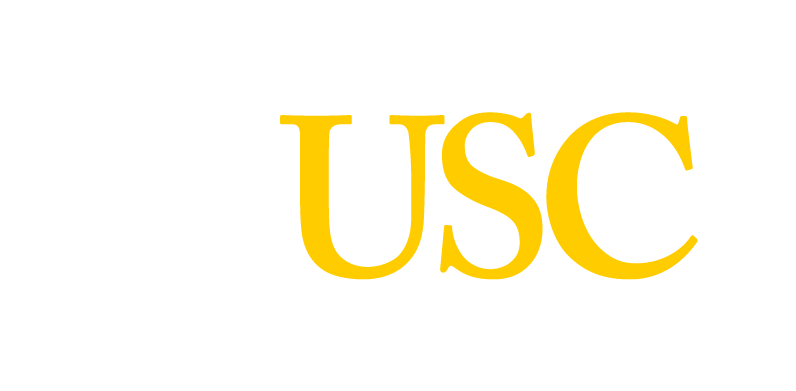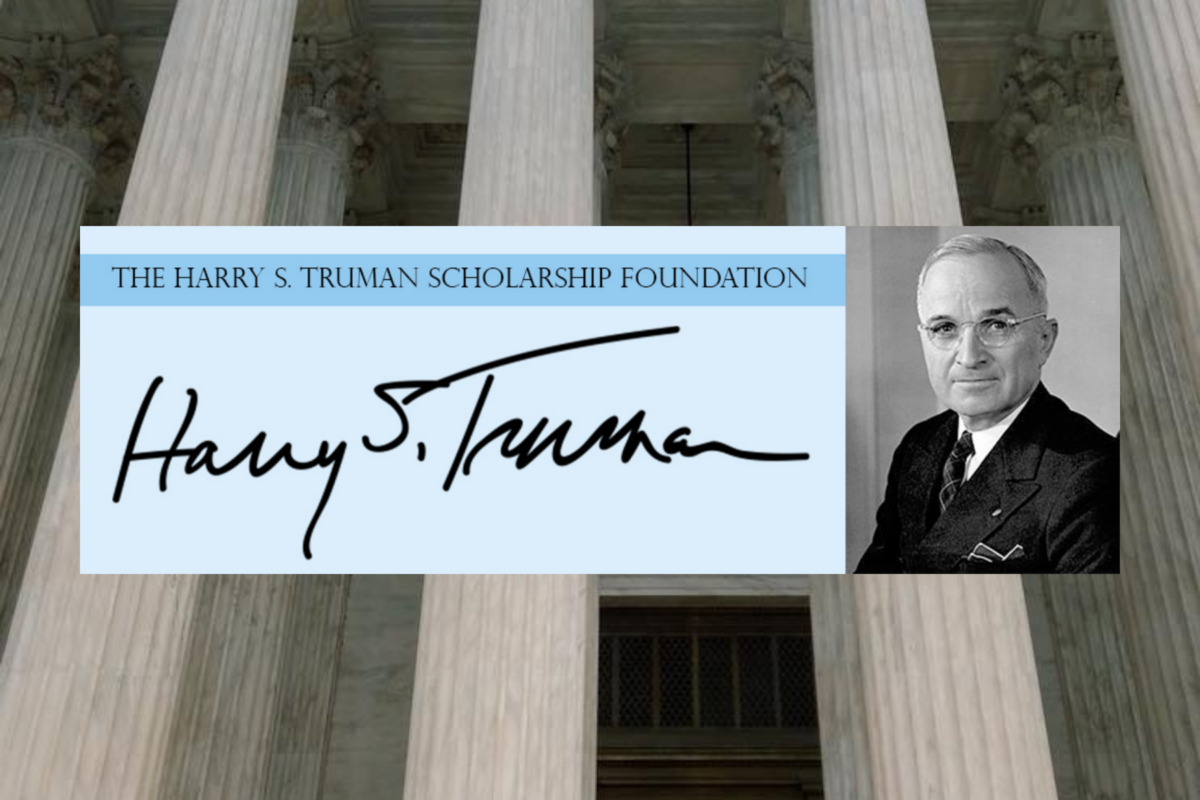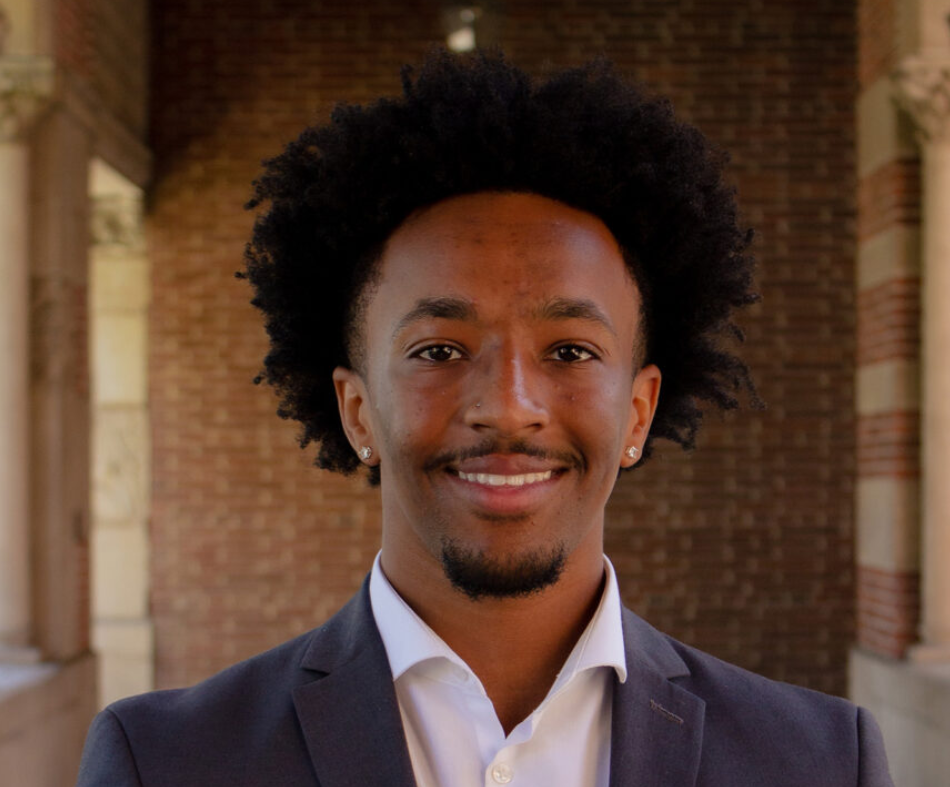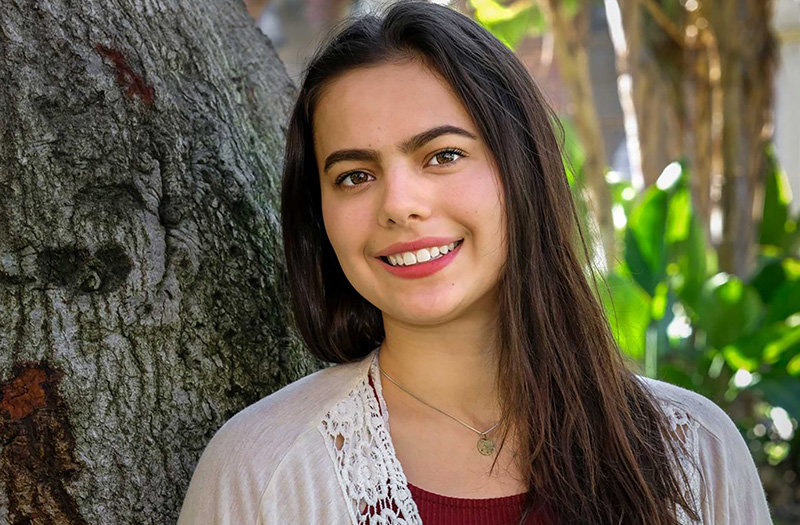About the Scholarship
The Harry S. Truman Scholarship is a highly competitive and prestigious scholarship for college juniors who have outstanding leadership potential, plan to pursue careers in public service, and wish to attend graduate school in the U.S. or abroad to prepare for their careers. The scholarship carries an award of $30,000 plus a variety of educational and leadership development opportunities.
As many as 65 Truman Scholarships will be awarded nationally each year.
Requirements
Eligibility Requirements
Basic Eligibility
Applicants must:
- be a current junior or have senior-level standing during their third year of college enrollment at the time of application.
- be a U.S. citizen (or U.S. national); or expect to receive U.S. citizenship by date scholarship is awarded.
Selection Criteria
USC juniors who demonstrate the following traits are invited to apply for campus endorsement:
- Outstanding leadership potential as demonstrated by elected positions in student government and clubs, organizing and implementing special programs or group projects.
- Extensive records of public and community service which include volunteer efforts, community organizing, and/or local political involvement.
- Commitment to careers in government or in the public or not-for-profit sector as demonstrated by previous internship or work experience.
- Strong desire to influence public policy.
- Possess intellectual strength in their written, analytical and communication skills.
- Clear intent to pursue a graduate degree program. Most Truman Scholars seek juris doctors or master’s and doctoral degrees in public administration, public policy, public health, international relations, government, economics, social services, education, urban planning, conservation and environmental protection. Scholars who are proposing multiple degrees need to state the case for why all degrees are needed to pursue public service career.
Endorsement
Campus endorsement is a competitive process and not guaranteed. Students seeking USC nomination must submit all application components by the campus endorsement deadline. USC may nominate up to (4) USC juniors who matriculated as freshman and (3) transfer juniors per application cycle.
Additional Guidelines
Applicants are evaluated by a committee panel of USC faculty. The panel has endorsed students from a wide range of majors, career goals and leadership experiences. While there is no standard portfolio for a successful candidate, there are some general evaluation guidelines that the faculty committee typically follows:
- Leadership: Formal leadership positions, such as elected office in student government or another organization, are one way to demonstrate leadership. The committee also values leadership in less formal roles, such as organizing community action efforts, spearheading a voter awareness drive, or lobbying for legislation or policy changes. You must demonstrate your ability to be a future “change agent.”
- Public Service: The faculty committee look for evidence of sustained interest in community or public service. This may be demonstrated by volunteer or paid activity, either on- or off-campus. Examples include government internships, political campaigns, student government, or volunteer work. Successful candidates have been involved in a specific activity or area of interest over a period of several years.
- Academic Success: Though it is not a strict requirement, the typical USC nominee has a GPA of 3.7 or higher. Your current major need not be directly related to public service, but it is important that your graduate school plans can be clearly connected to your public service career interests.
Application
Application Components
You must receive campus endorsement from the university before you can start the Truman Scholarship application.
Mirroring the national application, the campus endorsement application includes the following components:
- Background information
- List of leadership activities and public service experiences
- Transcript(s) or Academic Records
- 8 Short Response Essays
- 1) Leadership: Describe one specific example of your leadership. (The writer of your letter of recommendation re: Leadership Abilities and Potential must confirm this experience.) (2,000 characters max)
- 2) Public Service: Describe a recent particularly satisfying public service activity (do not repeat experience described in leadership essay). (The writer of your letter of recommendation re: Public Service must confirm this experience.) (1,700 characters max)
- 3) Problem or Needs of Society: Describe the problem or needs of society you want to address when you enter public service. (If possible, use statistical data to define the magnitude of the problem.) (1,500 characters max)
- 4) Significant Courses: What are the three most significant courses you have taken in preparation for your career? (250 characters max)
- 5) Graduate Program: Describe the graduate education program you intend to pursue if you receive a Truman Scholarship. (1,700 characters max)
- 6) Post-Graduate Study Immediate Plans: What do you hope to do and what position do you hope to have upon completing your graduate studies? (1,500 characters max)
- 7) Post-Graduate Study 5-7 Year Plans: What do you hope to do and what position do you hope to have five to seven years later? (1,500 characters max)
- 8) Additional Information: What additional personal information do you wish to share with the Truman Scholarship Foundation? (2,000 characters max)
Policy Proposal: The proposal must relate to the problem [s] you identified in the Problem or Needs of Society short essay. Please include the following in your proposal: Line one: To whom the proposal is addressed, the office they hold, and the issue you plan to address. The body of the proposal should consist of three parts: Problem Statement, Proposed Solution and Major Obstacles/Implementation Challenges. You may also list references, footnotes and exhibits at the end if applicable. (500 words max)
- Letters of recommendation (3) (Read more)
- Each of the letters should address one of the three main selection criteria. Letter writers, or referees, need not have witnessed the example(s) of your achievements described in your essays, but they should be able to discuss the example(s) in detail and how it fits within your overall profile as an applicant.
- Leadership Abilities and Potential: At least one letter should confirm the experience described in your leadership essay.
- Commitment to a Career in Public Service: At least one letter should confirm the experience described for the public service essay.
- Intellect and Prospects for Continuing Academic Success: At least one letter should discuss your overall academic background in the context of your future plans for career and graduate school. It is highly recommended that the referee has taught you at some point.
- Each of the letters should address one of the three main selection criteria. Letter writers, or referees, need not have witnessed the example(s) of your achievements described in your essays, but they should be able to discuss the example(s) in detail and how it fits within your overall profile as an applicant.
Click here to access the USC Campus Endorsement application.
Timeline
USC Campus Endorsement Application
- October 4, 2024: USC Campus Endorsement application opens
- November 3, 2024: Campus Endorsement application deadline
- Mid-November 2024: Campus Endorsement interview for competitive applicants
- Early December 2024: Interviewed candidates are notified of the University’s nomination decision
Truman Scholarship National Application
- December – February: Endorsed USC candidates collaborate with AHF staff to develop and finalize application materials
- February 4, 2025: Truman Scholarship national deadline
- Mid-Late February: Finalists notified
- March – April: Regional review panels for selected finalists
- April: Truman Scholars announced
- May: Truman Scholars Leadership Week and Awards Ceremony in Kansas City, MO.
Resources
- Truman Scholarship Website Interested applicants must complete an extensive review of the website with special attention to the following pages in advance of submitting their application:
- USC Recipient Essays Visit STU 300, Monday – Friday between 9 AM – 5 PM, to review successful USC Truman Scholar essays. No appointment needed.
Advising
Watch the recording of our recent virtual Information Session to learn about the USC Truman Scholarship campus endorsement process. We cover an overview of the application process, key tips for success, and insights into what makes a strong candidate. Whether you’re just starting to explore the scholarship or already preparing your application, this session will help guide you through the steps.
 Academic Honors and Fellowships
Academic Honors and Fellowships

